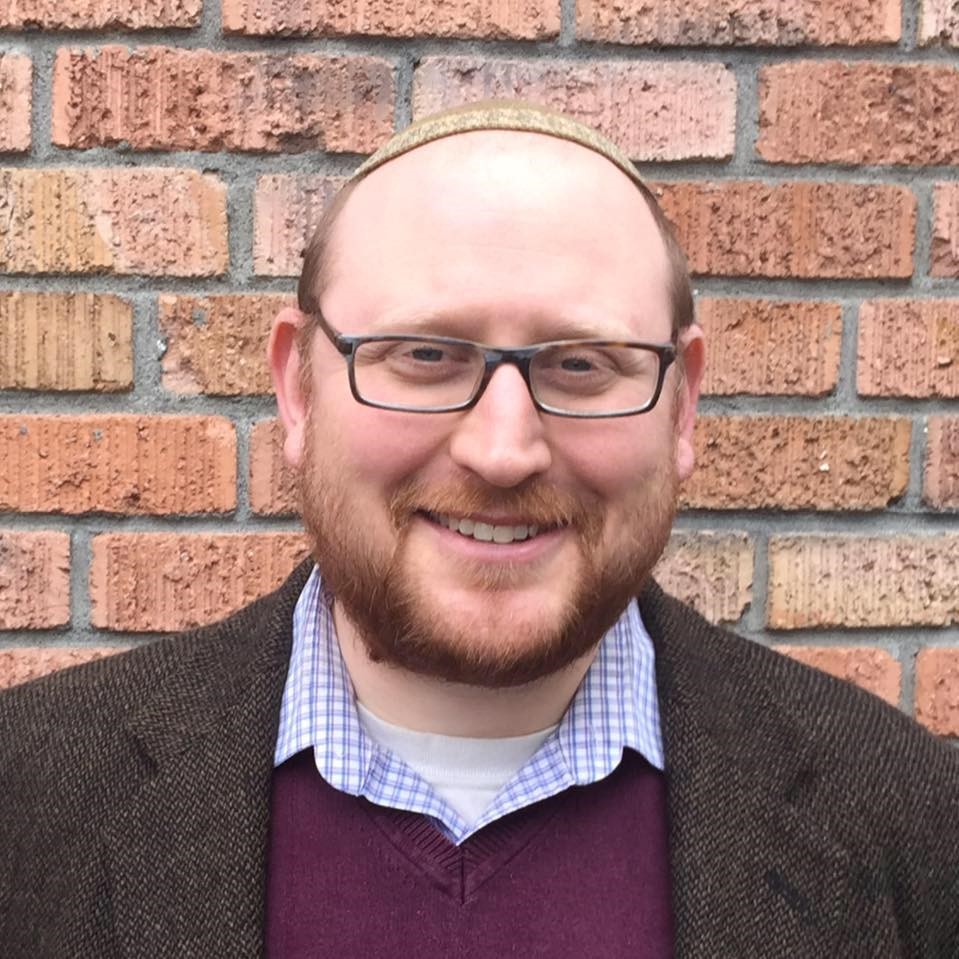In his inaugural speech at the Reconstructionist Rabbinical Association convention, Rabbi Seth Goldstein frames a vision of an American Jewish community guided by progressive values and radical egalitarianism.
(Excerpts from the March 28, 2017, presidential address to the biennial convention of the Reconstructionist Rabbinical Association in Portland, Ore.)
I accept this presidency with all the honor and trepidation that it entails. A bit of trepidation because of the times we live in. For we are living in challenging times, this year specifically. We are living in a time in which Jewish life is in flux, traditional institutions are being challenged, the Jewish community is organizing—or de-organizing, or re-organizing—differently …
Ultimately, we are an association of Reconstructionist Rabbis. An association of rabbis who share a common outlook and purpose, orientation and vision. An association whose membership comes from across the Jewish landscape, who find common cause with the aims and goals of the association, who find value in the ethical integrity of our professional standards, who find an intellectual and spiritual home here.
So what is it that we have to offer as Reconstructionist rabbis?
For me, it keeps coming back to the theme of this convention, that of Jewish peoplehood. And I know we have been wrestling with what this means. For me, when I think of serving the Jewish people, it means that we as Reconstructionist rabbis embrace an unapologetic progressivism, total inclusivity and a radical egalitarianism.
With a commitment to the Jewish people, we can state that we are committed to progressive values—actively evolving and not just waiting for outside forces to necessitate an adaptation. That we are committed to a level of equality and justice that necessitates taking a progressive political stance in the face of political forces that would preach difference and otherness. That we fully embrace and emphasize as core to our identity an active engagement in social-justice efforts and cultivating interfaith relationships. And we unapologetically committed to a progressive theology that recognizes the fundamental human need for spiritual inquiry, flourishing and transformation, and the ability to cultivate the forms and language necessary to meet people where they are.
With a commitment to the Jewish people, we must embrace inclusivity in all its forms and recognize the dynamic nature of the Jewish people, celebrating diversity in race, class, gender identity, sexual orientation and lineality. In the communities we serve, we must approach from a place of non-judgment those who seek to participate in our congregations or be counted among the Jewish people, regardless of their background or personal Jewish history. And we embrace those with multiple identities.
And with a commitment to the Jewish people, we embrace a radical egalitarianism that must transcend basic notions of betzelem Elohim (humans are created in the Divine image) and equal participation, to what I believe to be a fundamental and necessary reorientation and realignment of the American Jewish community, to advocate for the guarantee—through means and not just words—that each and every member of the Jewish people has the same access, the same opportunities, the same learning as everyone else.
As it stands now, we, as an American Jewish community, do not guarantee the same access to resources for all Jews. While we are quick to point out the wealth gap within our larger society, we are less willing to point it out when it comes to our own community among Jewish institutions.
I’m going to mention synagogues because that is the world I know, knowing that most of our members don’t serve congregations, so while the specific example may not resonate, maybe the idea will. We, along with the organized Jewish community, have fully embraced market capitalism. Synagogues are independent entities whose primary sources of funding are our members, and therefore those congregations with members able to give more will have more, and those with members less able will have less. We are in competition; we measure success by size and growth, and we seek upward mobility. We strive for more dollars because the synagogues with more resources will thus have more to offer, and the members of those congregations will thus have more and better Jewish knowledge and experiences than those that do not. The synagogue income gap leads to the Jewish knowledge and experience gap.
In addition, synagogues outside the geographic centers of institutionalized Jewry have less access to resources, and access to those resources—speakers, classes, musicians, etc.—requires additional expenditures. And size doesn’t matter; two 150-member congregations can be comprised of two different population bases with different giving abilities.
The Jewish community loves to fund innovation. But what we fail to realize is that innovation is a relative term—one congregation’s normal is another congregation’s innovation. The true innovation I suggest is not to fund some fancy new project, but to fundamentally think about how we organize and fund the American Jewish community through a system of redistributing wealth, so that we are sure that we are raising up all Jews. This to me is radical egalitarianism.
A progressive, inclusive, egalitarian Jewish people. That is what Reconstructionism means to me. What the RRA can continue to create. This is what brings me to this point of service to the association.







